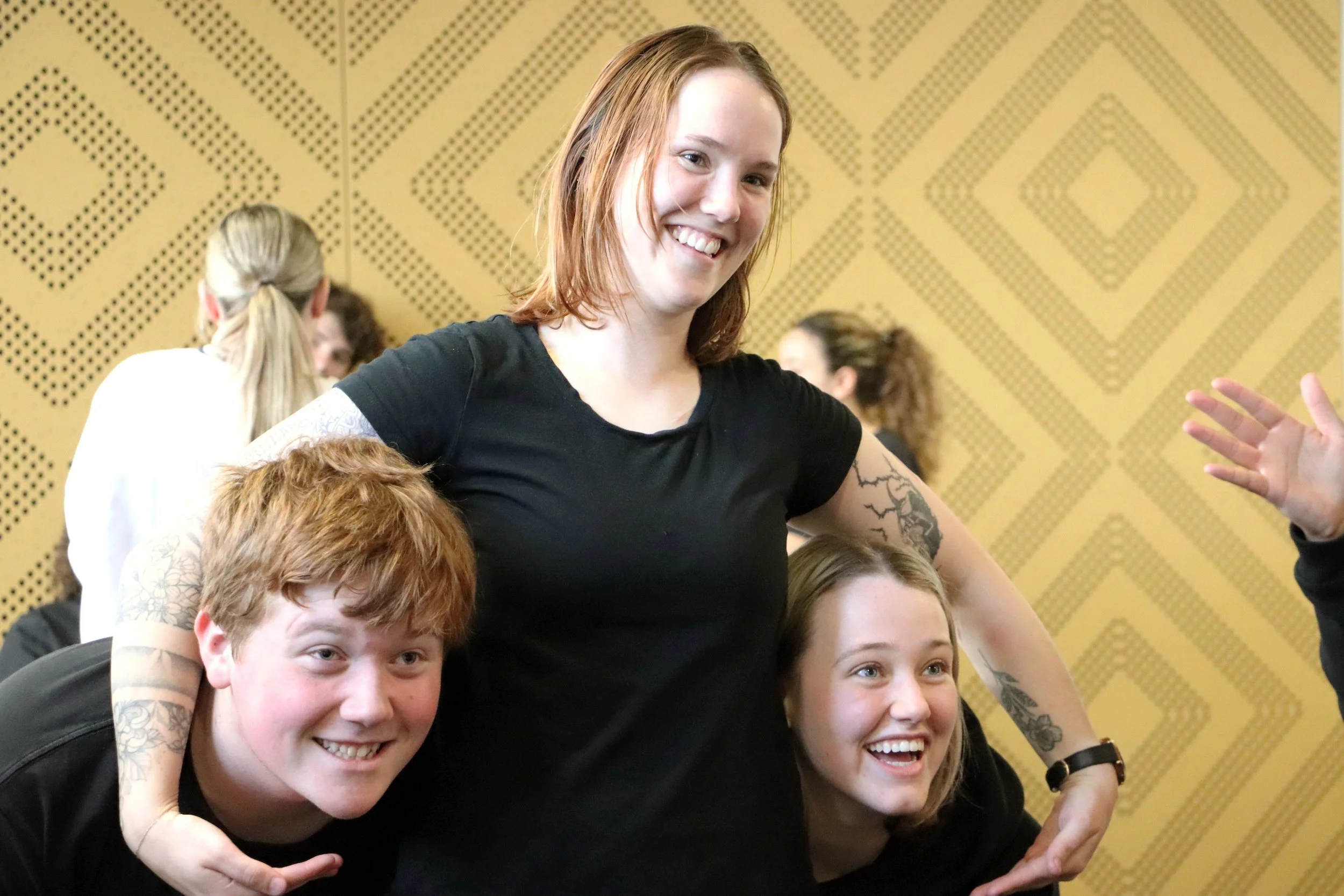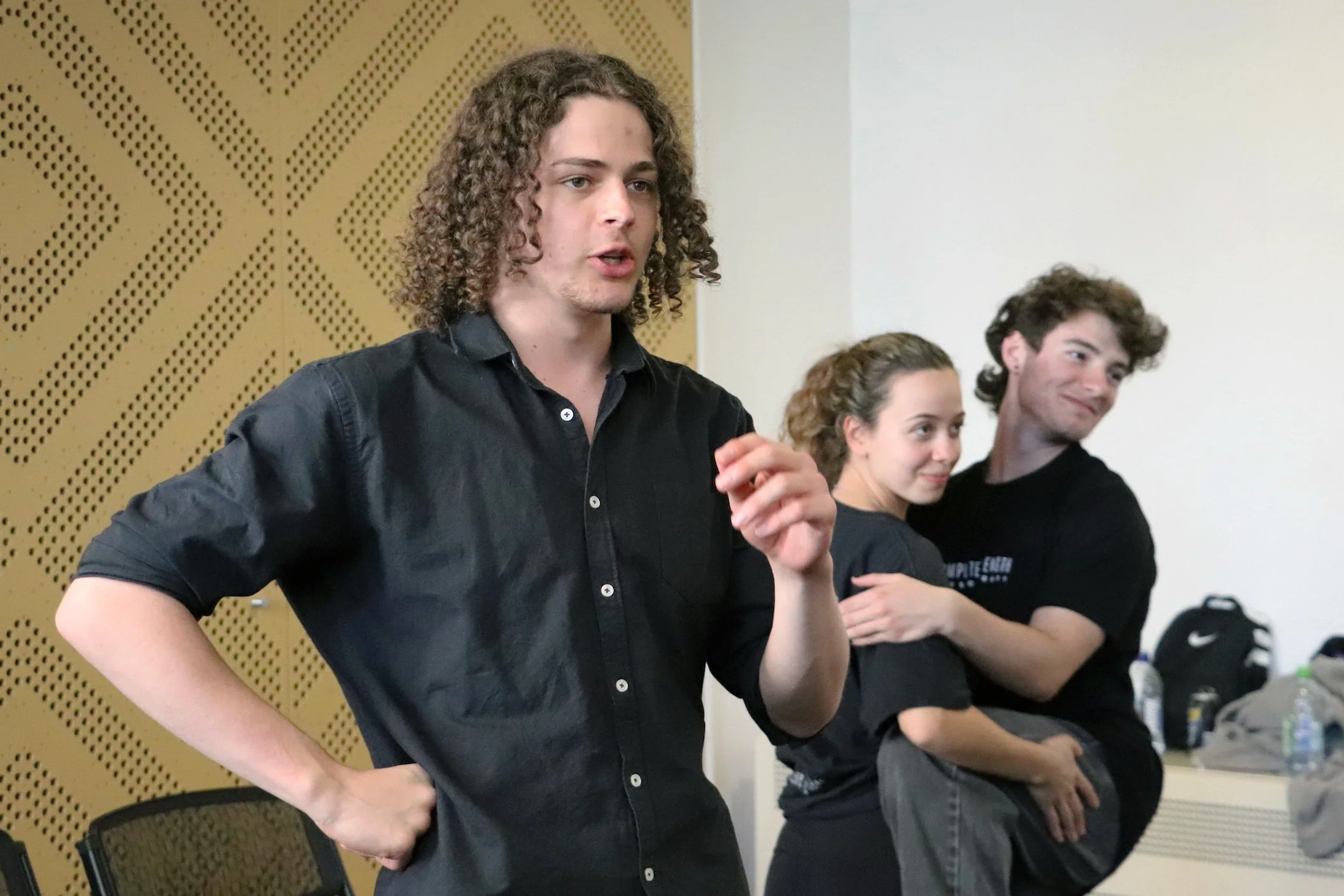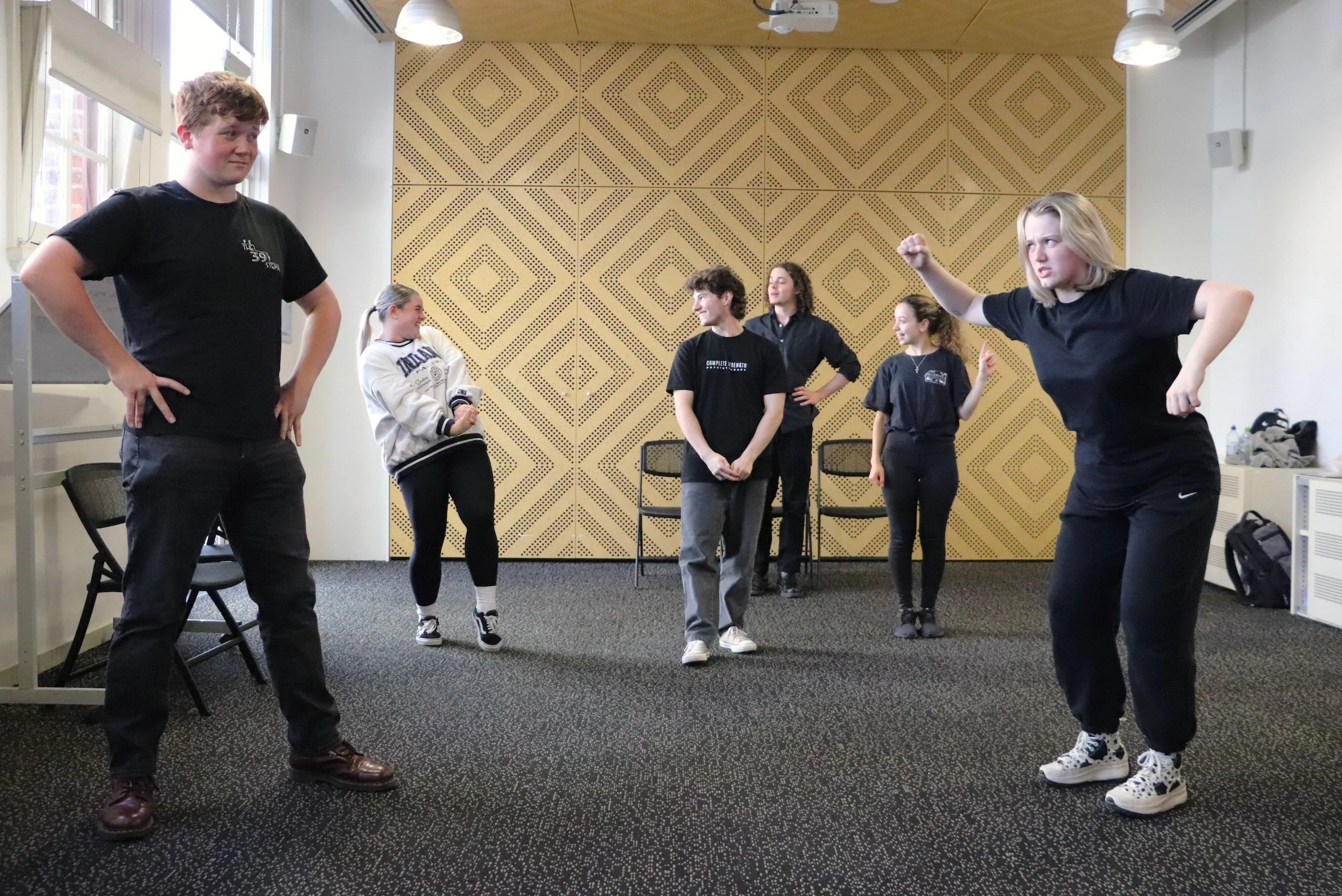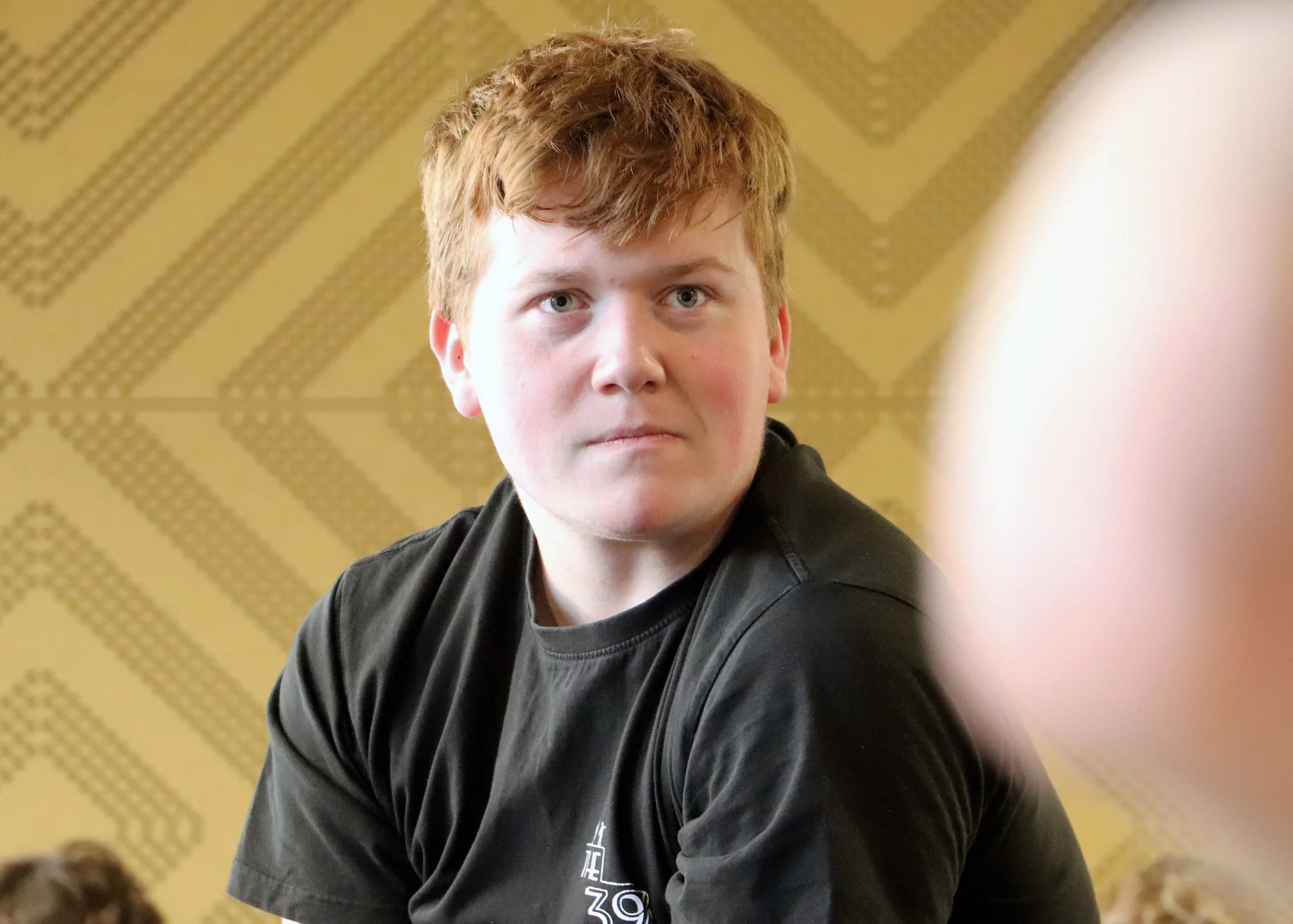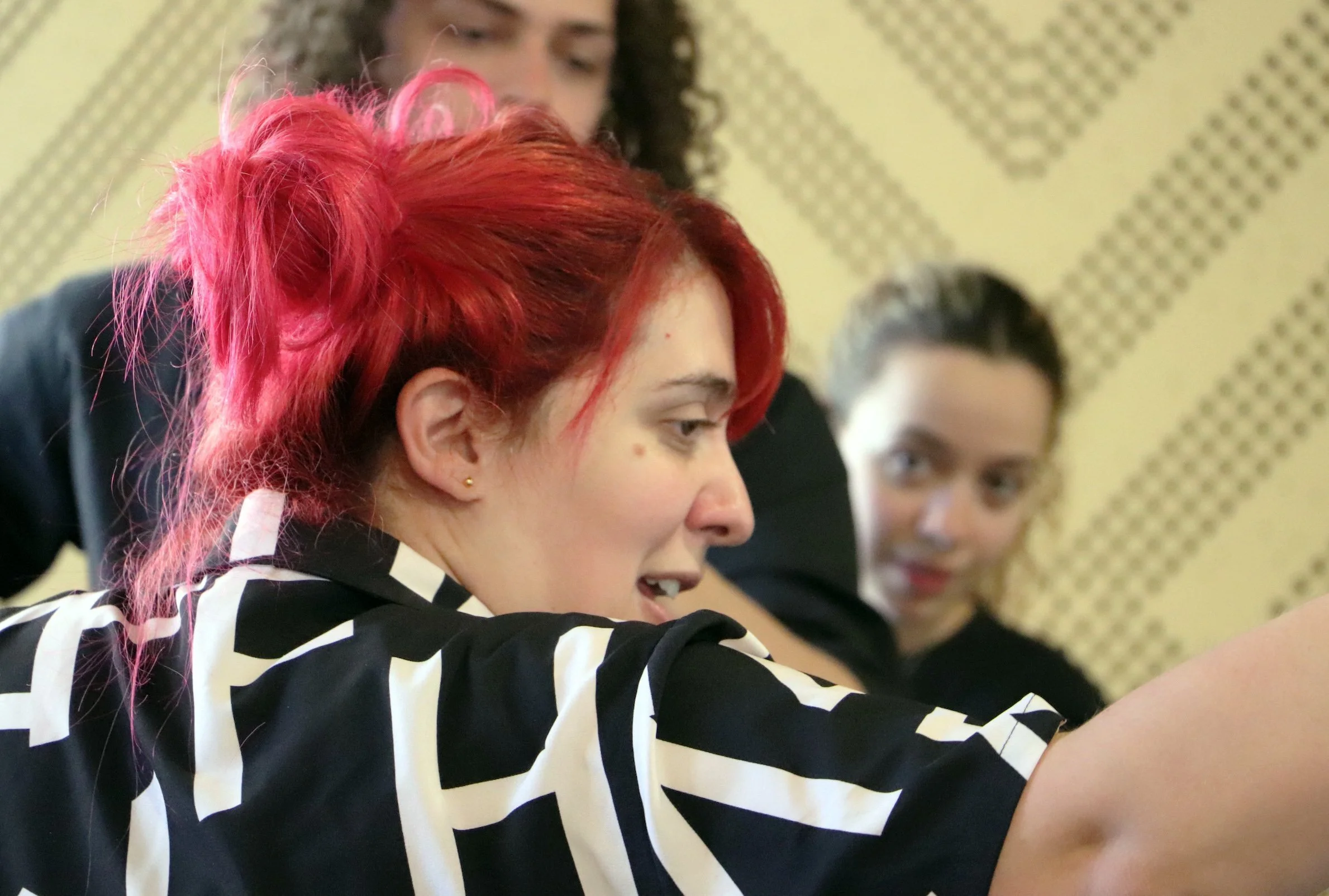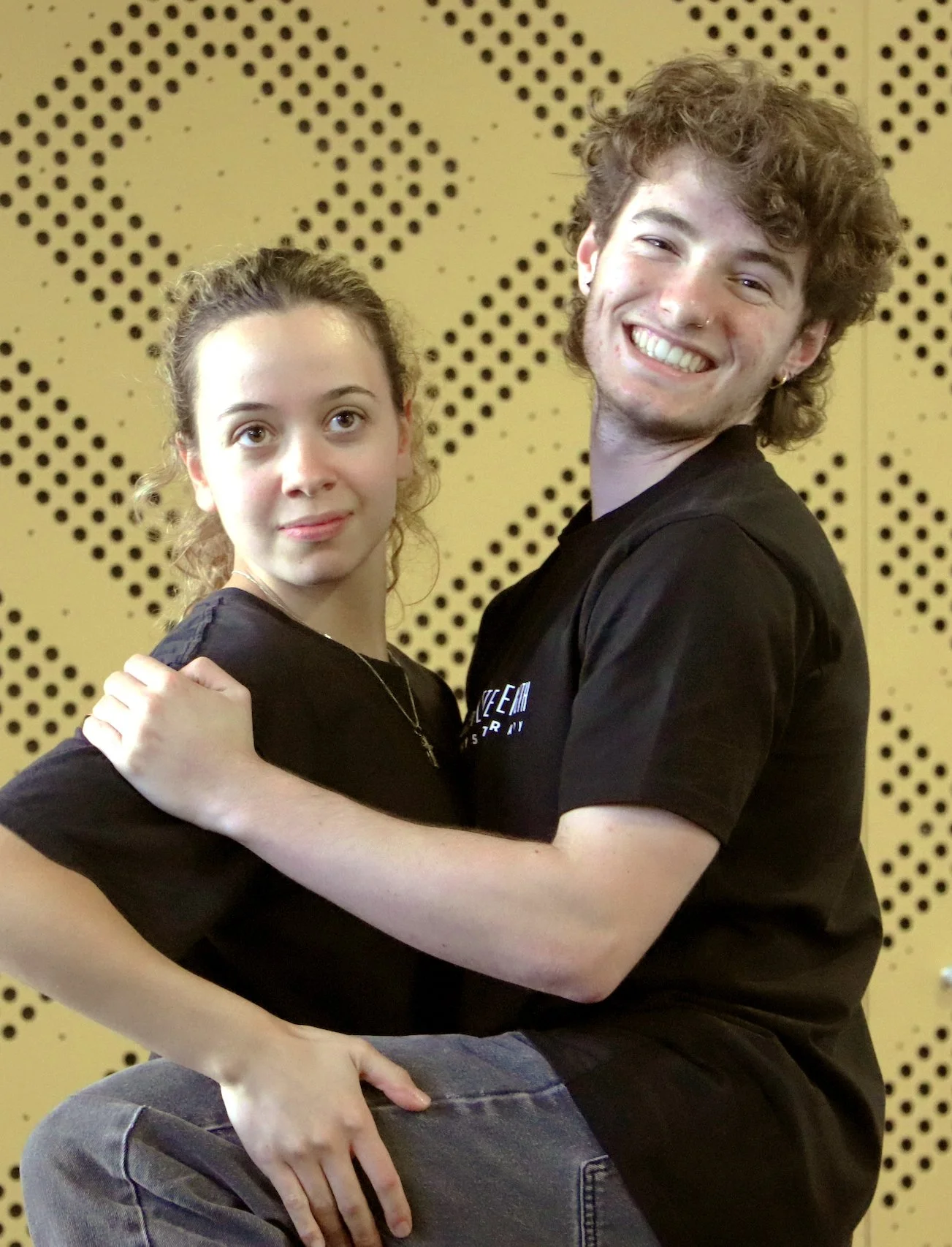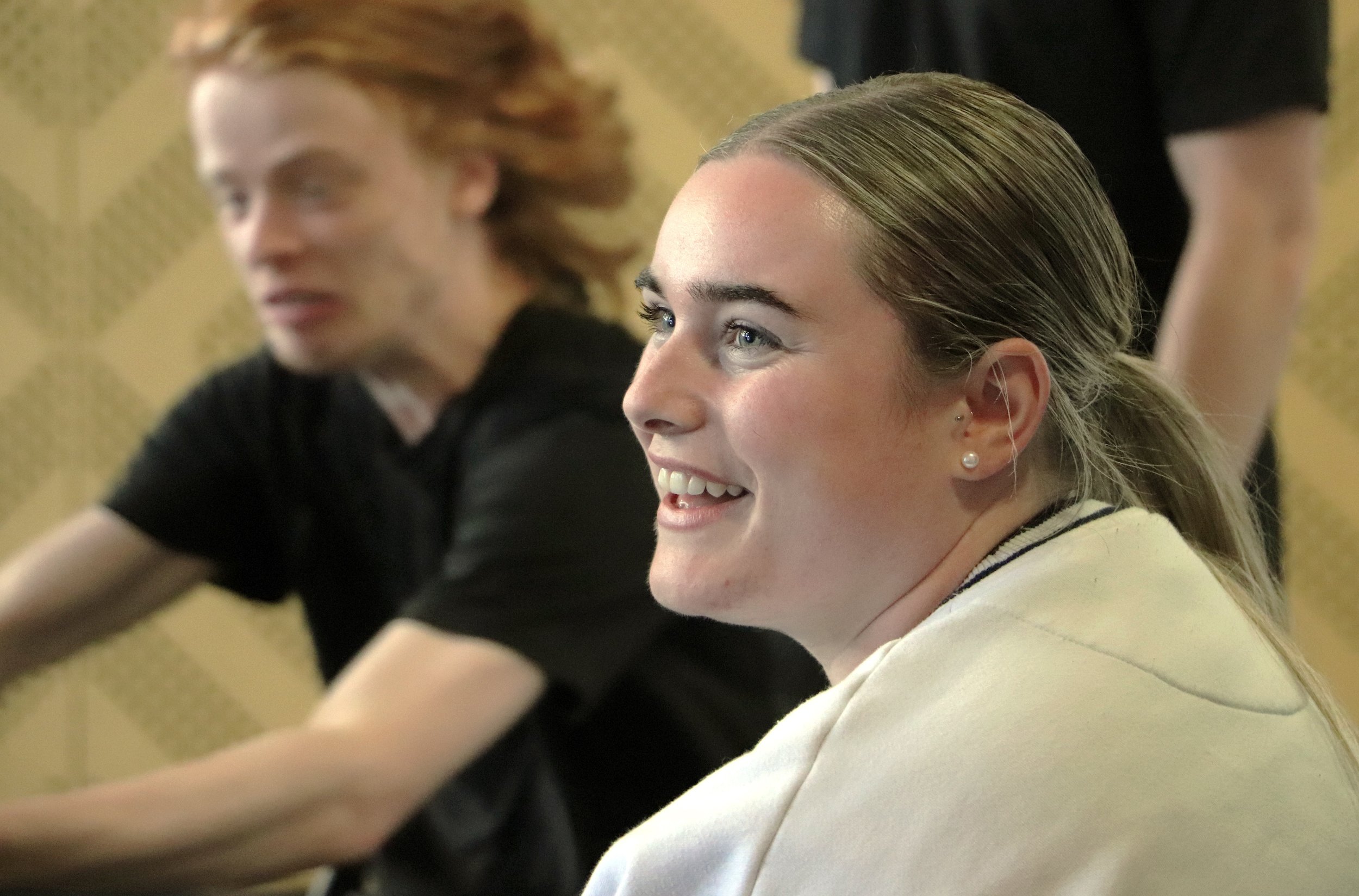Devising Workshop #2 - Narrating The Gods
The second devising workshop of THE DREAM focused on two pillars of classic Greek theatre: The convention of narration, and the stories of the Gods.
By now, our team of devisers had settled into the groove of each workshop: The exchanging of parking woes, the inevitable poor decision to drive over taking public transport (always take public transport!), the setting-up of the room as a communal round-table, and the firing up of the portable projector for The Imparting of Wisdom. (At least, that’s how we think of the 60 minute mini-class in theatre history, conventions, and styles that begins each workshop.)
Part of Scintilla’s mandate is not only to entertain but also to educate, and we build a thread of learning into each of our performance programs. Usually these cover things specific to the context of the play we’re performing: The history of the writers, their historical context, relevant theatrical styles of the play, and acting methodologies to help inform characterisation, directing choices, and performance skills. THE DREAM, however, has taken these to a whole new level - the breadth of the theatre styles we’re examining span thousands of years, and the stories we’re exploring have hundreds of interpretations across all forms of media. They’re less a mini-class, and more a full-body immersion in the juice of performance.
Today’s workshop allowed us to get reacquainted with the oldest of performative conventions: Narration. The first stories we’re ever exposed to are in the classic oral tradition - they begin “Once upon a time…” and form some of our most enduring memories of experiencing narrative as a living, changing thing. Having someone sit and tell you a story is a kind of magic, and whether you’re 4 or 40 or 400, we challenge you to not be enchanted by the spell of a master storyteller, conjuring a world with words while you sit and listen.
The birth of Apollo and Artemis. This is a medically correct depiction.
At first glance, narration might seem an old-hat form of theatrical convention, one which has firmly had its time and place… but the more you look for it, the easier it is to find. Narration, as a convention of non-naturalism, is everywhere - it’s in the disembodied voices of Under Milk Wood; embodied in the character of Our Town’s Stage Manager; the key function of The Ballad of Sweeney Todd. Narration is the primary mode of storytelling in Hamilton, perhaps the 21st Century’s best example of the dramatic convention to date. Narration obliterates the fourth wall, lays bare the artifice of the theatrical conceit, and forges an inviolable link between audience and performer. This is exactly how we want narration to function in THE DREAM.
All’s fair in love and war. At least, to hear Athena tell it. (Not featured: Athena. She’s giving notes.)
And what’s all this hifalutin discourse about narration in service of? The stories of the Gods, of course! And not just any Gods - the pantheon of Greek Gods, the iconic lords of Olympus immortalised in myth, legend, the planets of the solar system, and a very underrated Disney movie. The Greek Gods play a central role in the story of THE DREAM, which takes the premise of Shakespeare’s forest-outide-Athens-set play and posits a big old “What If?” scenario: What if Bill’s duelling fairies were actually the Gods of Olympus? Who would they be? And what would the fallout be for the four human lovers, having come into the orbit of such omnipotent, all-powerful, and extremely petty beings?
Two stories, both alike in dignity, inhabiting the same rehearsal space…
The first step in unpacking this “What If?”, of course, was doing some thorough research. Breaking into groups, our devising team compiled biographies of the central Gods of THE DREAM - Artemis, Apollo, Aphrodite, Athena - and identified their key myths and stories (how they came to be, what they represent, and who they fight with). Then, as a group, we brainstormed the theatrical possibilities of their key motifs, ideas, and images, coming up with concepts that could inform costume, mask, makeup, and characterisation later in the devising process.
Lockie (or is it Apollo?) considers the most flattering rendition of poisoning his mother. (She got better.)
Inspired and energised by these larger-than-life characters, it was then time to combine the practical with the theoretical. Building off the performance skills they developed in last week’s workshop, the devising team set to work bringing the stories of two of the Gods - the blustering, self-aggrandising Apollo, and the stoic, unexpectedly-vain Athena - to life, using the conventions of narration and chorus. As with everything our devisers do (or so we’re quickly learning), the results were both imaginative and hilarious, embracing physical comedy, caricature, edible props, and pop-culture references in a series of masterful lazzis.
Ryan contemplates using his imaginary sword on his indecisive director (Apollo).
Reflection from Genelle | Scintilla Facilitator
Playing with characters like the Greek Gods is always fun. Their backstories are so outlandish and spectacular. They’re fickle and proud and horrifying and mean and obtuse… What an outstanding foundation to build lazzi and character! They’re so easy to use in parody and comedy because they lack humanity. They have so much power, it’s so EASY to use them as target practice in comedic scene work.
Genelle directs with alacrity, gesture, and hair.
And I think that’s what I really liked about this session. A research and share task turned into a satirical exercise. How do we see Zeus today? How is Athena perceived? Is Hades just a little misunderstood? Does Apollo have Daddy Issues™?
Not only were the gods under the lens, but we got to play with one of my favourite theatrical conventions: Narration. When you take this convention and then bend the rules - what if the narrator keeps changing their mind on how the story should be told? What if the chorus rebel against their story teller? How do we, the audience, trust the person that tells us what we need to see and understand? - when you take the traditional role of narration, and then start to add lazzi, meta-theatre, ensemble work… you get some pretty hilarious scenes.
Reflection from Jack | Scintilla Facilitator
What I love about oral storytelling, particularly narration, is how immediately it involves an audience. It removes any sense of pretend or division (that pesky 4th wall) between actor and audience, and says, confidently and inescapably: “Come with us!” No suspension of disbelief is required.
Ben and Jemma rehearse a play (within a play).
I enjoy theatre the most when it brings you into its world. My earliest (and still the bestest) memory of the theatre is seeing Cats when I was 4 or 5 years old; the show opens with the titular felines moving through the auditorium, singing the prologue - an oratorio on the qualities of Jellicle cats - directly to audience members. And 4 or 5 year old me just so happened to be sitting in the aisle seat that was the mark of one of these cats. She wasn’t singing Jellicle Songs to the audience - she was singing to me, telling me, directly, the most secret secrets of the secret society of cats. Suspension of disbelief wasn’t required; the immersion of the audience was so total, there was no space for anything other than total belief. (And that’s why, to this day, I love that silly show about adults running around in spandex, pretending to be cats for two hours and singing songs with titles like Mr. Mistoffelees and Skimbleshanks The Railway Cat. I’ve seen it four damn times!)
Anyway, this type of immersion is exactly what we want to create with THE DREAM: A storytelling experience that places the audience directly in the middle of it, and transports them to somewhere magical; somewhere only live performance, theatre, can take them. And based on what our devising team was coming up with, they’re 100% tapped into that particular wavelength of theatre-making magic! I can’t wait to see what they do next week, when we start to explore [REDACTED DUE TO SPOILERS].
Reflection from Tom | Scintilla Theatre Technician
Sam enjoys a humorous aside during a warm-up game while Lockie enters the Speed Force.
Key observations, reflections, take-aways:
The simplest and fastest way to speak to an audience is to… well… speak to them! Break the fourth wall early and make your audience an active participant in the story. It’s super fun for both actor and audience!
Comedy is naturally funnier when the audience feels like they’re in on the joke. It feels less like you’re being told a joke at a distance, and more like you’re part of the setup and the punchline.
Narration gives you permission to tell your story in unusual and creative ways. It’s a get-out-of-jail-free card that can make the most outlandish twists and turns seem sensible, natural, and riveting!
Jack has questionable taste in musicals. (Is that really necessary to note? Yes, it is.)
Two workshops down, three more to go! Until next time… See you in THE DREAM!
G & J and THE DREAM Devising Team






